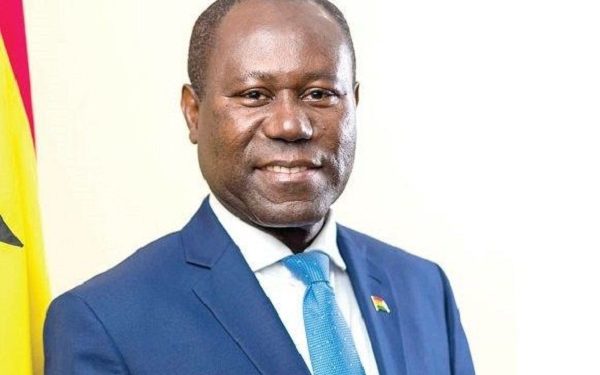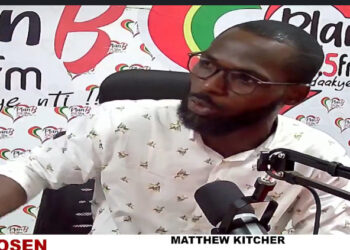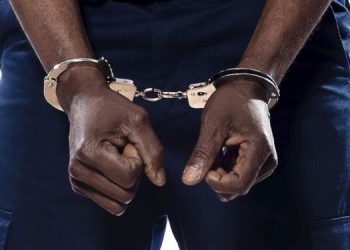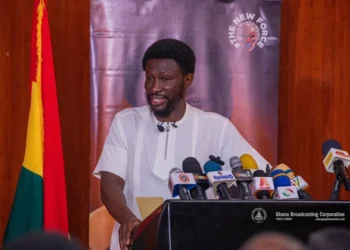A scandalous multimillion-dollar deal is brewing inside the Ghana Cocoa Board (COCOBOD) which has forced a large number of workers grumbling about management’s profligate spending, especially in the wake of the institution’s financial challenges, leading to the board almost failing to pay salaries of its workers recently.
The deal involves a company called Strategic Security Systems Int. Ltd. (3SIL) which COCOBOD, intends to purchase some solar torchlights from at the cost of GH¢300 million and distribute them to Cocoa farmers across the country for free.
On Friday, the Ranking Member of the Food and Agriculture Committee, Eric Opoku, expressed reservations over the government’s decision to allocate over 300 hundred million Ghana cedis to buy solar torchlights for farmers, but failed to disclose the name of the company.
Indeed, many feel that the GH¢300 million should rather go to farmers by way of cash, to supply beans and not solar torchlights.
Insiders have described the transaction as not just wasteful, but scandalous, as there are doubts about the execution of similar contracts awarded to the suppliers of the solar streetlight Strategic Security Systems Int. Ltd. (3SIL), a Ghanaian-owned company located at 3 Port Novo Street, Behind Mensvic Hotel East Legon, Accra.
The Herald’s information is that, before the Akufo-Addo government came to office, Strategic Security Systems Int. Ltd. (3SIL), during the tenure of Isaac Osei, as Chief Executive began dealing with COCOBOD and got awarded a US$7 million contract for the supply of some solar streetlights, also to be distributed and installed in Cocoa growing areas.
Upon the exit of the John Kufuor government, the company emerged again at the COCOBOD, under the management of Anthony Fofie during the John Mills administration and got some other solar streetlight contracts running into several millions of US dollars.
However, things got out of hand when reports emerged that the streetlights were not getting to the farmers, and the company was undersupplying.
The Herald is informed that the Opuni administration, as well as the Daniel Ohene Agyekum Board during the John Mahama administration, decided to carry out an audit into the procurements and installations of the solar streetlights, and refused to settle debts owed the company based on non-performance.
Among other things, COCOBOD, also refused to award additional contracts to Strategic Security Systems Int. Ltd. (3SIL) said to be owned by one Ofori Boateng, whose dealings with both the governing New Patriotic Party (NPP) and the opposition National Democratic Congress (NDC) have been described as nauseating.
The decision not to pay the company unless it performs its existing agreement with COCOBOD, led to the company dashing to court for a breach of contract. The company quickly got paid by the Akufo-Addo government in 2017, while additional supply contracts were thrown at it to execute.
Legal fees alone for the lawyers of Strategic Security Systems Int. Ltd. (3SIL), according to The Herald’s information, was around US$2 million and had to be settled by COCOBOD.
There are claims that Strategic Security Systems Int. Ltd. (3SIL) since its dealings with Isaac Osei management has been awarded solar lights contracts in the region of US$100 million.
It is unclear, if the contracts had gone through any competitive bidding process. But there have been claims that the company which boasts of providing services in Transportation & Logistic Services – Freight Forwarding, had once supplied the solar streetlight to COCOBOD for US$25, although it was procuring them for a paltry US$2 per unit, thus making a whooping US$23 before taxes and freight.
In Parliament on Friday, November 17, 2023, concerns were raised during deliberations, just before the approval of a US$800 million loan agreement between COCOBOD and a consortium of banks and financial institutions.
The loan is intended to finance the procurement of cocoa beans for the upcoming 2023/2024 Crop Season.
Eric Opoku, the Asunafo South Constituency in the Brong-Ahafo Region on the ticket of the National Democratic Congress (NDC) questioned the government’s priorities, stating, “Mr. Speaker, the government has provided in the 2024 budget that they are going to use over GH¢300 million Ghana cedis to purchase torchlight. Is that a priority at this time? At the time the Government cannot even pay contractors.”
He further voiced concerns about the alleged mismanagement of COCOBOD, describing the current situation as “gasping for breath.”
Mr Opoku, emphasised that were it not for the plight of cocoa farmers, the minority would not have approved the loan agreement.
Despite these concerns, Parliament has given its approval for the US$800 million loan agreement, which will be utilized to purchase approximately 47 per cent of the projected 850,000 tonnes of cocoa beans from farmers through Licensed Buying Companies for the 2023/2024 cocoa season.
Ghana’s cocoa farmers, have been complaining that they are broke as the cocoa board – to which they are obliged by law to sell their produce – is unable to pay them. The Ghana National Cocoa Farmers Association is beginning to complain.
The farmers say that the board – known as COCOBOD – has not treated them fairly and there is fear that they will soon be smuggling cocoa beans out of Ghana, according to a BBC report.
But COCOBOD has assured that concrete steps have been taken to ensure it can secure enough funds to finance its annual cocoa purchases in the 2023/2024 crop season.
Against the backdrop of a report by Reuters that the firm had borrowed up to US$200 million from cocoa traders to plug its funding gap, COCOBOD said it had adopted a two-prong financing strategy to ensure that it obtained the required funds for the purchasing season.
A statement from COCOBOD in response to the Reuters report indicated that it had had firm assurances from its bankers of making funds available in time for the purchasing season and that a “Cocoa syndicated Loan has been laid in Parliament for consideration and approval.”
Anane Boateng, the president of the Ghana National Cocoa Farmers Association, complained that while his members do all the work and shoulder the costs, COCOBOD seems unable to make a profit.
There are currently worries that some farmers might be forced to smuggle their remaining beans into neighbouring Ivory Coast to sell them.
Ghana is the world’s second-largest producer of cocoa and the industry makes up around 15% of the country’s exports.
COCOBOD has been losing money for the past six years, according to MP Eric Opoku – who is on the parliamentary committee that oversees the board.
COCOBOD, says that it is still trying to secure a loan to pay for the 2023/24 crop, the Reuters news agency reports. But parliament will still need to approve that and there has been a problem because COCOBOD has failed to account for the money it borrowed in 2020, Mr Opoku said.
So far, the board has borrowed money from cocoa traders to pay for its purchases, Reuters reports. COCOBOD said in a statement that it wanted to “assure our stakeholders that the necessary arrangements have been made to secure enough funding for cocoa purchases for the year under review”.










Discussion about this post